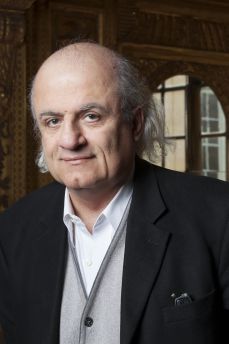Nasser Rabbat

dates de séjour
discipline
Fonction d’origine
Institution d’origine
pays d'origine
projet de recherche
Historicizing the City: Al-Maqrizi and his Cairo Khitat
Taqiyy al-Din Ahmad bin ‘Ali al-Maqrizi (1364-1442), is the historian with the most expansive repertoire of the entire Mamluk historiography. His al-Maqrizi’s books is the Kitab al-Mawa‘iz wa-l-I‘tibar bi-Dhikr al-Khitat wa-l-Athar, in particular, is a unique achievement that narrates the evolution of Cairo, covering every aspect of its history: its transformative moments, monuments and their patrons, wonders and religious merits, and its changing relationship to its environment. The book I am proposing aims to re-present al-Maqrizi as a historian with a structured project that chronicled Egypt’s history through successive annals, prosopographies, and short treatises. The project revolved around the Khia with which al-Maqrizi started and which he was continuously redacting until his death. Indeed, the Khitat articulated the cumulative narratives on the various facets of Egyptian history and illustrated in an almost visual way the ravages of unjust rule, which al-Maqrizi blamed on the Mamluks of his time, and which he treated thoroughly in several other writings. This was al-Maqrizi's critical stance, conceived from within the epistemological framework of a medieval Muslim thinker; in other words, moralizing, inherently teleological, and evidently pre-humanist, but still redolent with an anguished search for truth.
biographie
Nasser Rabbat is the Aga Khan Professor and the Director of the Aga Khan Program for Islamic Architecture at MIT. An architect and a historian, his scholarly interests include the history and historiography of Islamic architecture, art, and cultures, urban history, and post-colonial criticism. He teaches lecture courses on various facets of Islamic architecture and seminars on the history of Islamic urbanism and contemporary cities, orientalism, historiography, and the issue of meaning in architecture. In his research and teaching he presents architecture in ways that illuminate its interaction with culture and society and stress the role of human agency in shaping that interplay. He worked as an architect in Los Angeles and Damascus. He was a visiting professor at the École des Hautes Etudes en Sciences Sociales (EHESS), Paris (2009) and the Ludwig-Maximilians-Universität, Munich (2007). Among his fellowships are, The Radcliffe Institute for Advanced Study Fellowship (2011-12), The American Research Center in Egypt Fellowships (2007-08, 1999-00 and 1988-89), the Chaire de l’Institut du Monde Arabe (2003), and The J. Paul Getty Postdoctoral Fellowship (1993-94). He regularly contributes to a number of Arabic publications and serves on the boards of various cultural and educational organizations. He lectures extensively in the US and abroad, consults with international design firms on projects in the Middle East, and maintains several websites focused on Islamic architecture and urbanism.











